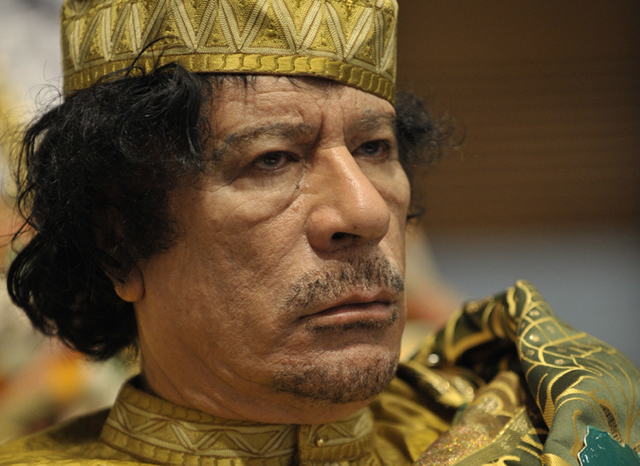Religion: Negative or positive force?

Vuso Mhlanga Features Correspondent
Police officers scamper for cover, with congregants in hot pursuit. The men in white catch up with some officers and give them a baptism of fists and rods. A few journalists are caught in the crossfire.
The May 2014 clash, that happened when Apostolic Council of Zimbabwe president Johannes Ndanga attempted to enforce a ban on Madzibaba Ishmael’s church for abusing women and children, stands out as a case of false fire gone wild.
However, it is only one of many such cases as fanaticism, violence and manipulation of the laity has been taking over pockets of religion.
One of the uglier shows was Nobert Kunonga’s sustained persecution of the faithful in the Anglican Church just to hold on to power.
In the recent past, one of the most respectable Christian brands in Zimbabwe, AFM, has been marred by reports of schism, corruption and litigation.
Christians may be unwittingly missing an opportunity to be the salt and light Jesus mandated them to be as they further destablise a world desperately in need of moral examples.
One cannot help making much out of the way religion has given tabloids to cash on its contemporary slackness.
Of course one cannot be dogmatic or stereotypical with regard to the trend. It is impossible to make a case to the effect that religion is a negative force in the world.
On the contrary, faith has given us many Mother Theresas and Good Samaritans.
Instead of maximising benevolence, however, fundamentalist ne’er-do-wells have contributed many red pages under the guise of religion.
This resonates with the observation made by satirist Jonathan Swift that: ‘‘We have just enough religion to make us hate, but not enough to make us love one another.’’
A cursory look at religion as a front for terror confirms as much.
In the West Bank village of Duma, an 18-month–old Palestinian child, Ali Dawabsheh is killed in an inferno sparked by two Jewish extremists, one of whom is Amiram Ben-Uliel.
He and his accomplice have since been convicted of arson by the Israeli government.
In Nigeria , the most populous nation in Africa, Boko Haram, a sectarian Moslem Jihad group kills many and has since been a menace .
Back in the distant past, William Tyndale was killed for his noble effort of translating the Bible, the sacred record, into English, the language of many.
One may be prompted to ask, what is the problem with religion?
Can one be sceptical of all religions? What positive things have some religions accomplished?
Are there signs on the horizon that give hope that one day religion will largely become a force for good?
These are complex questions that need answers because religion affects every person alive today, even those long buried in the bowels of the earth.
During World War 1, in different warring camps, the clergy “blessed” the fighting armies, even invoking God’s name.
They have also given talismans to the soldiers alleging that they would protect the soldiers.
In the battlefield, Catholics have slaughtered Catholics and Protestants have killed Protestants.
On another note, on a continent where Christian churches are predominant, the anti-Semitic discourse has seen many Jews being butchered in what is now known as the “Holocaust”.
Admittedly, others died because of being conscientious objectors, the likes of The Bible Students.
Religion has spawned violence and blatant hatred. Jews also have fought Jews on religious grounds. As reported in The New York Times in 1977, quoted in the Awake journal, a young Jew from Brooklyn, New York, was stunned by what he saw.
The Hasidim, (the pious ones) among the rabbis were punching each other. The young man remarked: “I could not believe my eyes,” he continues, “I saw a man with a beard punching a man with a beard.” Traditionally “the most pious ones” wear beards and black suits.
It is reported that during the Passover time, in March, 2000, Lubavitch Hasidim trespassed into the territory of the other rival faction called “Satmar Hasidim”.
The former, it is alleged broke into a senseless spree of beating elderly rabbis and hurling objects at them.
The main problem with religion, as has been established, is intolerance and meanness. Christians cannot exist side by side, Moslems cannot co-exist, the same is also true of other religions.
The intolerance found its niche 6 millenniums ago as aptly portrayed in the Bible record, when the world was still “young”; Cain killed his brother Abel.
The reason, the form of worship practised by the former was not acceptable in the sight of God.
That is the first recorded account of religious bigotry and intolerance engraved in the Bible.
During Jesus’ time intolerance was also rife. Jesus himself condemned the intolerance and bigotry of his time using a poignant illustration of The Good Samaritan. Samaritans were looked down upon by the religious sects in existence during the time Jesus walked the earth especially by the self righteous Pharisees.
In the illustration that Jesus furnished, a Samaritan businessman, and benevolent benefactor, helped the man in need, a Jew. He reflected, to the recipient of that magnanimous act, brotherly love that transcends tradition, language and prejudice and malice that was rife at that juncture in religious history, which is also commonplace in our time.
Jesus himself was different, though not condoning sin, mingled with tax collectors, prostitutes and lepers.
He was not mean. Though Pharisees hated him, he even accepted invitations for dinner and social intercourse.
The genocide in Rwanda that took place from April 1994 to mid–July of the same year illustrates so clearly the extent to which Christianity lacked brotherly love.
People streamed into the walls of the churches and the religious leaders exploited that concept of religion as a sanctuary.
The Hutu rebels came and “harvested” those seeking refuge at the church structures.
The sought after refuge proved to be a false refuge as aptly demonstrated by the following quotation from the book Christianity and Genocide in Rwanda, “Organisers of the genocide exploited the historic concept of the sanctuary to lure tens of thousands of Tutsis into church buildings with false promises of protection; then Hutu militia and soldiers systematically slaughtered the unfortunate people who had sought refuge, firing guns and tossing grenades into the crowds gathered in church sanctuaries and school buildings, methodically finishing off survivors with machetes, pruning hooks, and knives . . . The involvement of the churches however, went far beyond the passive use of the church buildings as death chambers.
“In some communities, clergy, catechists, and other church employees used their knowledge of the local population to identify Tutsis for elimination. In other cases, church personnel actively participated in the killing.”
Nothing could be so apt; the buck stops at religion.
Admittedly, as has been mentioned, Christians cannot exist side by side.
They have the same Bible but different ideologies that divide them.
The courts are full of cases and litigations involving religious leaders warring over property and power.
Ironically, Christianity attaches a lot of import on peace, tolerance, and brotherly love.
Jesus himself said the hallmark of true Christianity is genuine love that transcends every divisive force.
Religion has to some extent benefited humanity. Well meaning people have expended themselves for the cause of benefiting men. Many have even paid with their lives. Many like John Wycliffe and William Tyndale, have made the Bible accessible to the common men. They exhausted even their fortunes to that worthy cause.
Non-governmental agencies sponsored by religions, like Catholic Relief Services, World Vision, Plan International, the Swedish Organisation for Individual Relief among others, have furnished help that has improved lives of peoples.
They have carried projects that have improved mankind.
Missionaries have built schools, hospitals and clinics. Religion also has the potential to improve economies through religious tourism.
The media on May 7, 2014, reporting about the International Convection of Jehovah’s Witnesses that was to take place in August 2015 made this sterling observation; “The International Convention, the most significant of its type, will bring major economic impact to Zimbabwe including an estimated 20 000 rooms nights and millions of dollars in overall economic impact.”
News of such nature is promising. It is a glowing sign that religion can benefit mankind. The religious tourists cited above streamed from lands afield including Kenya, Zambia, Brazil, the US and Germany.
- Feedback: [email protected].











Comments